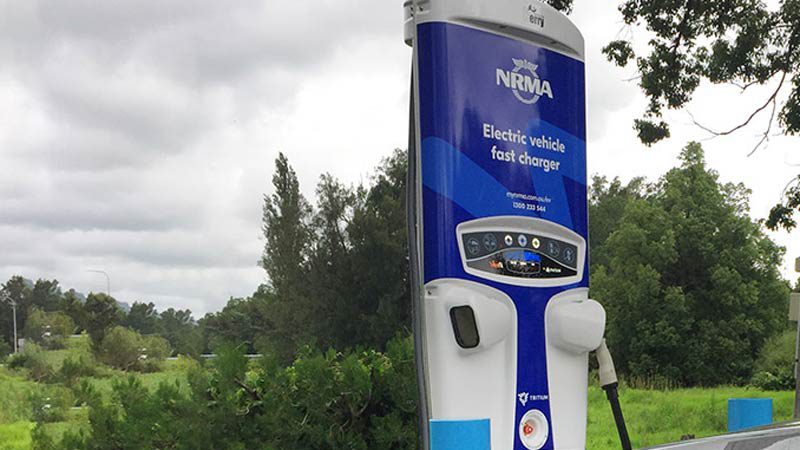After six years, the era of free-fast charging on the NRMA EV charging network is coming to an end. The motoring group on Monday announced that its new payments system will be introduced at three locations this week, and to all 100 stations by the end of October.
The end of free-fast charging has been anticipated for some time, and flagged by the NRMA itself, including in an interview on The Driven podcast with NRMA Energy boss Carly Irving-Dolan in June.
Once viewed as a welcome reward and encouragement for early adopters, the existence of free charging has become a problem in many areas in recent times because of “squatting” and poor etiquette by sometimes selfish motorists, which has caused delays and queues for other drivers.
See our stories on this issue: “Sorry, I went ballooning: It’s high time charging networks cracked down on EV squatters. And: “I’m calibrating:” Why some Tesla drivers make people wait at free fast chargers
The NRMA says the payments system will kick off this week (from September 27) at the Sydney Olympic Park, Picton and Wallsend charging stations, before gradually rolling out across the whole network.
Costs will vary from 54 cents per kWh at charging speeds of up to 150 KW, and 59 cents per kWh for charging speeds above 175 kW. Once the payment system is rolled out across the whole network, a 10 per cent discount will apply for NRMA members.

“Since its original social investment in 2017, the NRMA Electric charging network has been free to all electric vehicle users,” the NRMA said in a statement.
“The NRMA prioritised the roll-out of the network before seeking to apply costs to customers to give drivers confidence to consider an EV and get used to the charging process.”
Australian Electric Vehicle Association national president Chris Jones said many drivers were fed up seeing the NRMA network used by people who did not need it.
“You’ll see the people who actually need to charge charging their vehicles at those stations now and the people who don’t need to charge will find somewhere else,” he told AAP.
“It’s going to be cheaper to charge your vehicle at home or at work and people should opt to do that as the priority and save people who are in a hurry and genuinely need it.”
Dr Jones said he expected NRMA’s charging stations to remain popular given their locations along major travel routes but charging for their use could reduce queues during holidays.
“You’ll still see people queuing up to use it during peak periods because they want to get on their way but you won’t see locals or near locals using them because they happen to be on a coffee break,” he said.
The payments will need to be made via the NRMA app.
The Driven sought more details from NRMA but was told that no one was available to talk and to refer to the organisation’s brief statement.

Giles Parkinson is founder and editor of The Driven, and also edits and founded the Renew Economy and One Step Off The Grid web sites. He has been a journalist for nearly 40 years, is a former business and deputy editor of the Australian Financial Review, and owns a Tesla Model 3.

